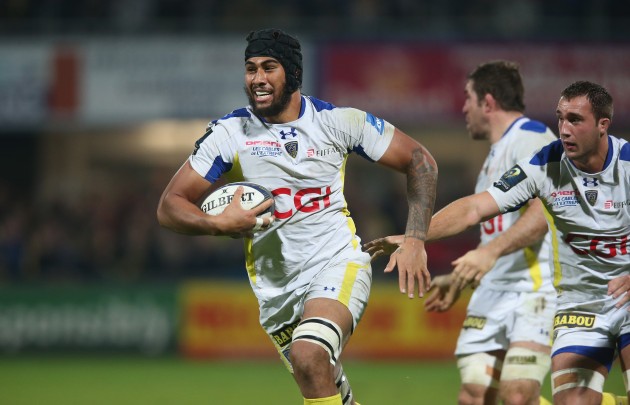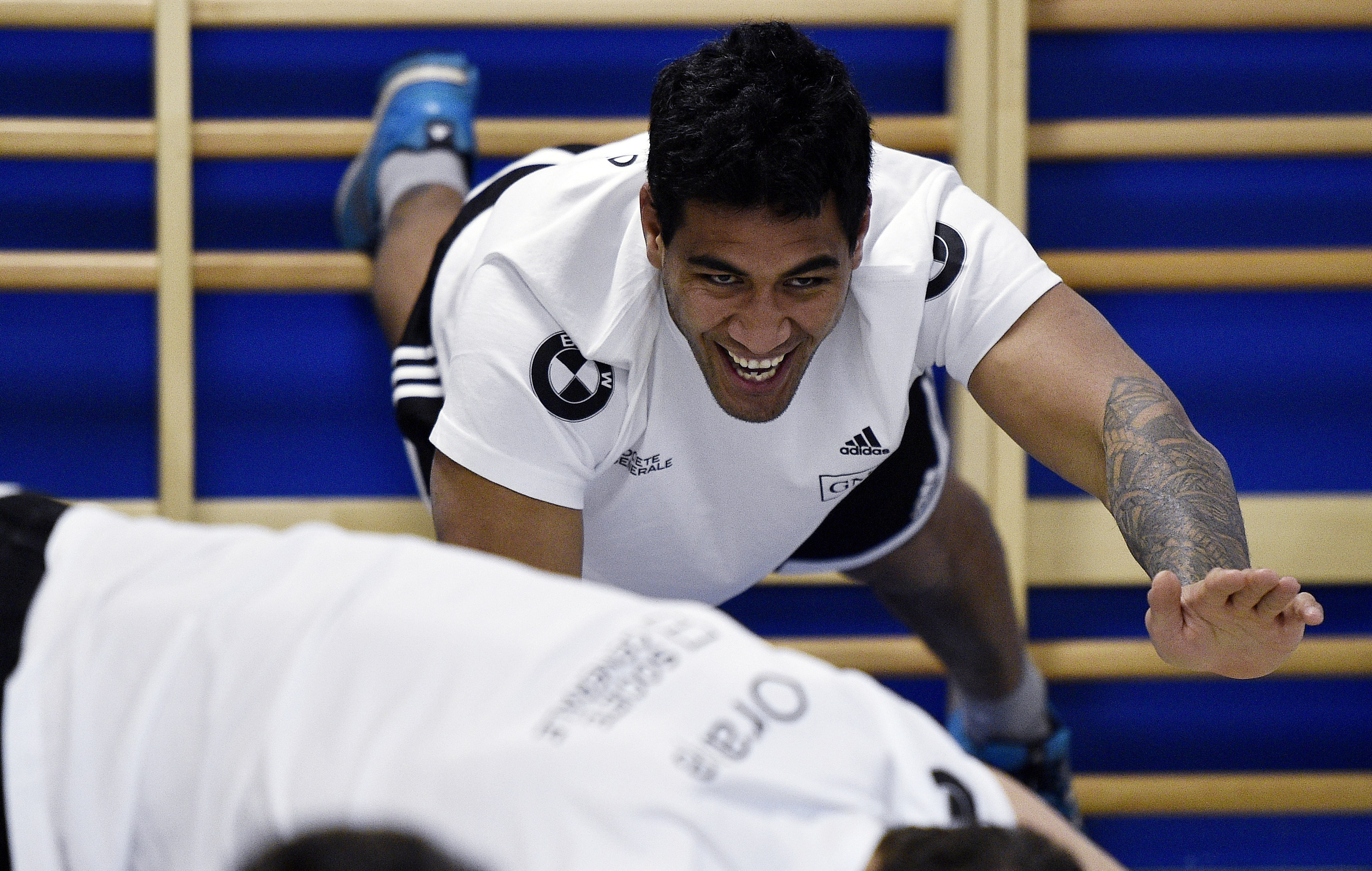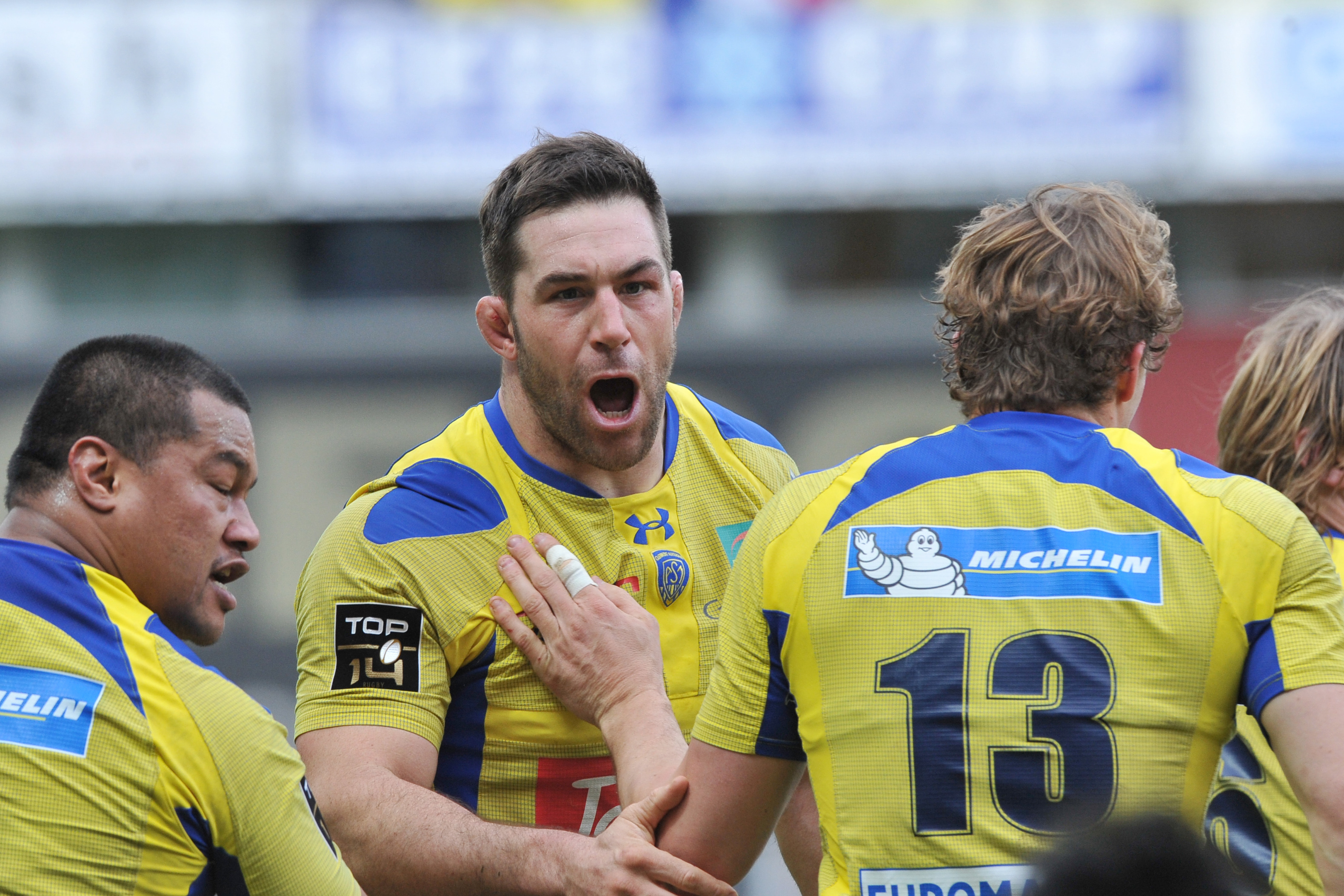Sebastien Vahaamahina came to rugby late in life, but at 6ft 6in and nearly 20st he soon found his true metier with Clermont and France
Sebastien Vahaamahina is a big man with a soft voice. And soft hands, too, as he’s shown this season for Clermont in combining set-piece solidity with ball-handling athleticism in the loose. The French giant, who stands 6ft 6in and weighs in at just under 20 stone, arrived at the club last summer and now commands a regular slot in their starting XV, packing down alongside Jamie Cudmore in the second row, and leaving the veteran French international Julien Pierre to warm his derriere on the bench.
One can safely say Vahaamahina isn’t a man who seeks the spotlight. He rarely gives interviews, and when he does talk, one has to crane one’s neck to catch those soft words. Not that he’s a difficult interviewee, far from it. He punctuates his prose with melodious chuckles and gives the impression of a man at ease with the world.
“He’s got a great sense of humour,” says Cudmore who, at 36, is 13 years Vahaamahina’s senior. In fact Vahaamahina will be the exception in Saturday’s Champions Cup final, the only lock on the field under 30. Like Cudmore, Toulon’s second-row pairing of Bakkies Botha and Ali Williams are in their mid-30s, leaving the Frenchman to carry the flag for 20-somethings. “It’s going to be the first time that I play against them,” says Vahaamahina of the South African and New Zealander. “They’re great players, both World Cup winners, so it will be a pleasure to play against them, particularly if I manage to impose myself at the set-piece and show them that youth has arrived!”
A decade ago, while Williams and Botha were at the peak of their careers, Vahaamahina was a gangly adolescent growing up in New Caledonia, a dependent territory of France in the Pacific Ocean 750 miles east of Australia. He didn’t even play rugby in his childhood, preferring the frenetic pace of handball, one reason why his hands are so soft and his co-ordination so sharp. “It was my brother who began playing rugby,” explains Vahaamahina. “I accompanied him to training and that’s how I started. Then I carried on it school. And another important figure was Georges Sao, our priest. He told us stories about rugby and helped us understand the rules. I suppose you could say it was a ‘coup de foudre’ [love at first sight]; the first time I picked up a rugby ball I was in love with it. I loved the contact and everything about it.”
Vahaamahina certainly had the build for his new passion. “I was tall as a child,” he reflects. “By the time I was 15 I was 6ft 3in but I wasn’t that broad. In fact I was the slimmest in my family.”
But none of them had his talent and when he visited France for the first time in 2009, to compete for a New Caledonia team in a Sevens tournament in Brive, he was swiftly identified as a star of the future. “I went back to New Caledonia for a couple of months at the end of the tournament and Brive was the first club to contact me,” says Vahaamahina. “There were others who contacted me but Brive was the first one, and I immediately warmed to Brive and its structure.”
Returning to Brive for the start of the 2009-10 season, Vahaamahina admits he took a little while to settle into his new environment. “It was a bit of shock around November when the weather changed,” he says, laughing.
His acclimatisation to professional rugby was swift and after two seasons with Brive he joined Perpignan, in the deep south of France. Not long after his arrival, however, Perpignan ran into a financial storm and were eventually relegated from the Top 14 to the ProD2 at the end of the 2013-14 season. Vahaamahina, like a number of other players, moved on, in his case to Clermont. “It was a hard decision to leave Perpignan but if you do something and you feel you made the right choice, then it helps,” says Vahaamahina, who won the first of his 15 caps against Australia in 2012. “I’ve joined a big club here at Clermont, with a great team. I’m developing and I want to continue to develop.”
Vahaamahina made two appearances in the back-row during the 2014 Six Nations, a compliment to his footballing skills but not an experiment he particularly enjoyed. “I prefer the second row,” he says emphatically. Nonetheless, his ability to play in the loose like a third flanker has been to Clermont’s advantage this season and Vahaamahina’s tackle success rate of 96% out of 177 tackles is bettered among the forwards only by open-side Alexandre Lapandry.
Clermont are rare among Top 14 clubs in that the bulk of their pack are French internationals, seasoned ones at that. Between them the flankers Julien Bonnaire and Damien Chouly, and front-row trio of Benjamin Kayser, Vincent Debaty and Thomas Domingo have more than 200 caps. “I’m someone who asks questions of the older guys,” he says. “I learn from them and discuss with them. It helps that there’s a trust within the squad that allows me to do that.”
But it’s Cudmore from whom Vahaamahina has learned the most this season. Laughing when asked if they have a ‘father and son’ relationship given the age gap, the 23-year-old admits he does from time to time ask what it feels like to be 36. Is it wise to pull the leg of Cudmore, one of rugby’s more robust characters? “Jamie is a completely different character on the training ground to what he is on the pitch,” says Vahaamahina. “During matches, one can see he is there to win, he wants to dominate. But he’s done a lot to bring on my game and playing alongside him, learning from him, has really improved my game this season.”
Cudmore returns the compliment, warning the world that Vahaamahina will be a frightening figure when he hits his peak years as a player. “He’s got all the tools to be one of the best, and as he grows into his talent he’s going to be a force to be reckoned with,” says the Canadian. “Strength, size and speed are already a given. He’s also got a mean streak that he can turn on in the big games, which is very important for imposing himself.”
He’ll need that mean streak at Twickenham on Saturday. Botha and Williams are tough characters who will want to test the temperament of the 23-year-old Frenchman in what is his first major final. But Vahaamahina is a hard man himself, albeit one who prefers to do his talking on the pitch.








